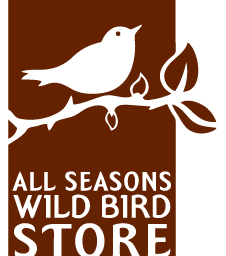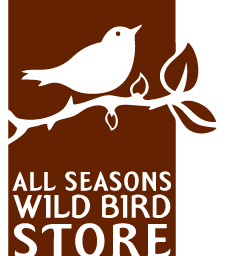 From the Jan/Feb 2025 edition of the Bird’s-Eye View Newsletter
From the Jan/Feb 2025 edition of the Bird’s-Eye View Newsletter
I’ll admit, there have been times when it’s cold or rainy outside that I haven’t been quick to refill my backyard bird feeders. I’d avoid looking out the windows or tell myself, “I’ll get to it tomorrow.” But then I’d observe a cardinal hopping from port to port on a tube feeder, searching for seed. In minutes, I’d be pulling on my boots and shrugging into my jacket to go fill the feeders. Why? Because nothing is sadder to me than an empty feeder. Conversely, nothing brings me a greater sense of satisfaction and well-being than seeing my feeders bustling with birds!
While my experience of achieving a positive mental reset from feeding birds is purely anecdotal, it turns out researchers are documenting how the activity of bird feeding is tied to a sense of well-being.
Surveying People Who Feed Birds
Researchers Daniel Cox and Kevin Gaston (2016) conducted surveys to explore people’s attitudes toward backyard bird feeding. They found that most respondents reported that watching birds in their yards made them feel relaxed and connected to nature.
Further, Cox and Gaston discovered that these feelings of well-being increased in people who noticed birds around them for a greater portion of the day and in those who fed birds regularly.
Perhaps taking a cue from this research study, the Cornell Lab of Ornithology’s Project FeederWatch program now includes two places to enter data about the observer’s emotional states while conducting their monthly bird feeder surveys.
Observing Birds and Tracking Emotional Well-Being via Smartphone App
In a 2020 study, Hammoud et al. concluded that the act of bird feeding is positively associated with significant increases in people’s sense of connection to nature.
Building on this study in 2022, Hammoud et al. examined the impact of seeing or hearing birds on self-reported mental well-being. They asked study participants to track their sense of well-being on a smartphone app in real time when they saw or heard birds.
The data revealed that seeing or hearing birds through activities such as feeding can cause robust improvements to participants’ mental well-being—improvements that last up to eight hours beyond the initial bird encounter.
Bird Sounds Show Restorative Effects
I love to crack open the window on spring and summer mornings to listen to the dawn chorus. It turns out this habit is beneficial to the psyche: a 2013 study in the Journal of Environmental Psychology found that, of all the natural sounds one might hear, people were most likely to associate birdsong with stress recovery and attention restoration.
Further research by Dr. Eleanor Ratcliffe at the University of Surrey (2020) found that some bird sounds offered relief from mental fatigue and stress, particularly those that are quiet, high-frequency, or melodically complex.
A Historical Perspective: The Great Depression and the COVID-19 Pandemic
According to the book Feeding Wild Birds in America, bird feeding as a hobby grew during the Great Depression. Many Americans were sticking close to home in the 1930s, and their bird feeders provided a relatively affordable source of comfort as well as a small slice of nature they could enjoy.
A similar situation of isolation at home led bird feeding to grow as a hobby during the COVID-19 pandemic. The Wild Bird Feeding Institute (WBFI) reported in 2021 that there was a measurable boom in birdseed sales during and after the pandemic, strongly suggesting that bird feeding fulfills a human need for connection with nature.
The Importance of Connecting with Nature
When I feed the birds in my backyard, I feel a connection with nature. I’m watching, hearing, and nurturing the birds that visit my feeders.
Numerous studies demonstrate that connecting with nature unlocks psychological benefits, such as resetting from task-driven fatigue (Kaplan & Kaplan, 1992), improved memory (Berman, Jonides, & Kaplan, 2008), increased problem-solving skills and creative abilities (Atchley, Strayer, & Atchley, 2012), and a reduction in risk factors and burdens of some types of mental illness (Bratman et al., 2019)—plus many more.
My 2025 New Year’s Resolution
This year, I vow not to procrastinate filling my feeders. After all, I’ve learned—both anecdotally and through scientific research—that keeping feeders filled is not only good for the birds; it’s also good for me!
By Guest Contributor KATRINA HASE

